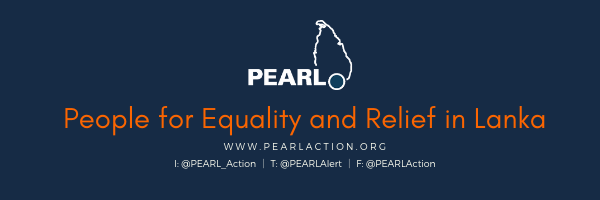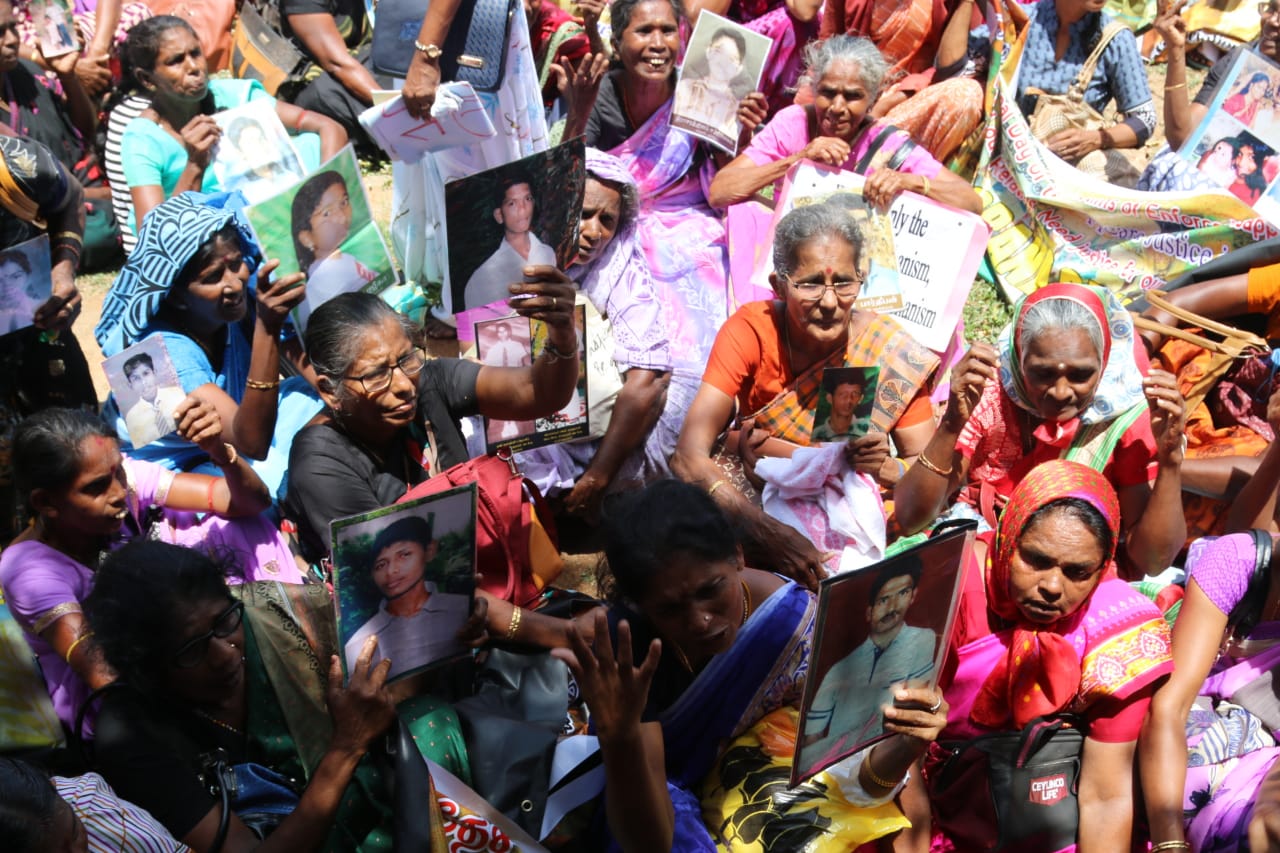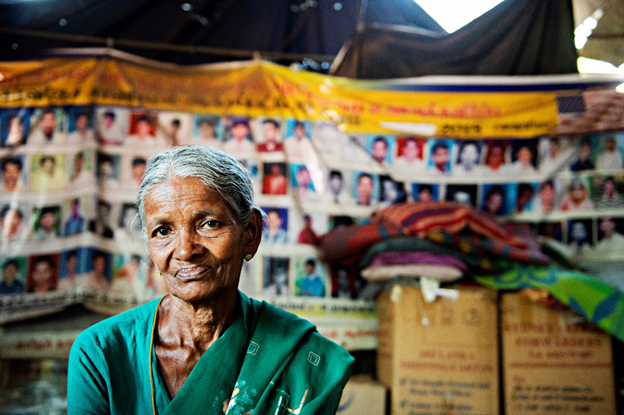
by People for Relief and Equality in Lanka, August 30, 2019
(Washington, D.C.; August 30, 2019) – Today we mark the International Day of the Victims of Enforced Disappearances. We stand with Tamil relatives of the disappeared who today marked Day 922 of their years-long protest for answers about the fate of their loved ones. Ignoring their pleas is an ongoing injustice.

Families of the disappeared protesting today in Omanthai, the site of detention for many of those who were forcibly disappeared in May 2009. Photo by: K.Kumanan
The families of the disappeared commemorated today by protesting in Omanthai, the site of detention for many of those who were forcibly disappeared in May 2009. We also pay special tribute today to the 53 family members of the disappeared who have died protesting, and without receiving answers about their loved ones.
Sri Lanka is one of the countries most acutely affected by the crime of enforced disappearance. It is estimated that there are currently 60,000 to 100,000 unresolved cases of enforced disappearances – most of which were perpetrated by the state. Tamils were disproportionately targeted in these abductions, both during the war and in the years since. Entire families, including young children and infants, were disappeared after being detained by Sri Lankan security forces. To date, not a single one of these cases has been resolved.
Tamil families of the disappeared today gathered at Omanthai, the former border crossing into the LTTE-controlled region where many Tamil civilians and combatants were taken into government custody before being disappeared. In a renewed appeal to the international community, these families again called for external intervention, reflecting the Tamil community’s continued lack of trust in the state and its institutions. We support the call by these families that the Office of Missing Persons (OMP) speedily investigate five instances of enforced disappearances, which could build trust in the institution.
The international community, particularly the original co-sponsors of UN Human Rights Council (UNHRC) Resolution 30/1 almost four years ago, must also fulfil their responsibilities in supporting justice and accountability. The recent appointment of alleged war criminal Shavendra Silva as the commander of the Sri Lankan army was not an isolated occurrence. Potential progress has been undermined by the repeated engagement of foreign militaries, particularly the U.S., with a military that stands accused of war crimes and genocide, as well as the re-granting of trade privileges. The international community’s sharp increase in positive public engagement with the Sri Lankan state has given Sri Lanka the confidence to promote and honor suspected war criminals, such as Silva, and renege on its commitments under the UNHRC resolution from October 2015.

Photo by Sugi Thiru
Today, we pay tribute to all victims of enforced disappearances in Sri Lanka and continue to stand in solidarity with all those campaigning for truth and justice, particularly the Tamil families of the disappeared in the North-East. We call on the OMP to heed the demands of these families and take meaningful action on the five cases supplied to them by the families. We also call on the international community to treat accountability and justice as a priority in Sri Lanka and condition engagement with the Sri Lankan state on credible prosecutions of atrocity crimes.
To read more on the plight and protest of Tamil families of the disappeared, please visit our web page. There you will find information on Sri Lanka’s enforced disappearances, the devastating impact it has on Tamil families, and the failure of the Office of Missing Persons to meaningfully address the concerns of the families of the disappeared. On an island where impunity for the most heinous atrocity crimes can springboard Gotabaya Rajapaksa and Sharvendra Silva, both alleged war criminals, into power, Tamil voices are critically valuable. Together, we call for international action and investigation into genocide.